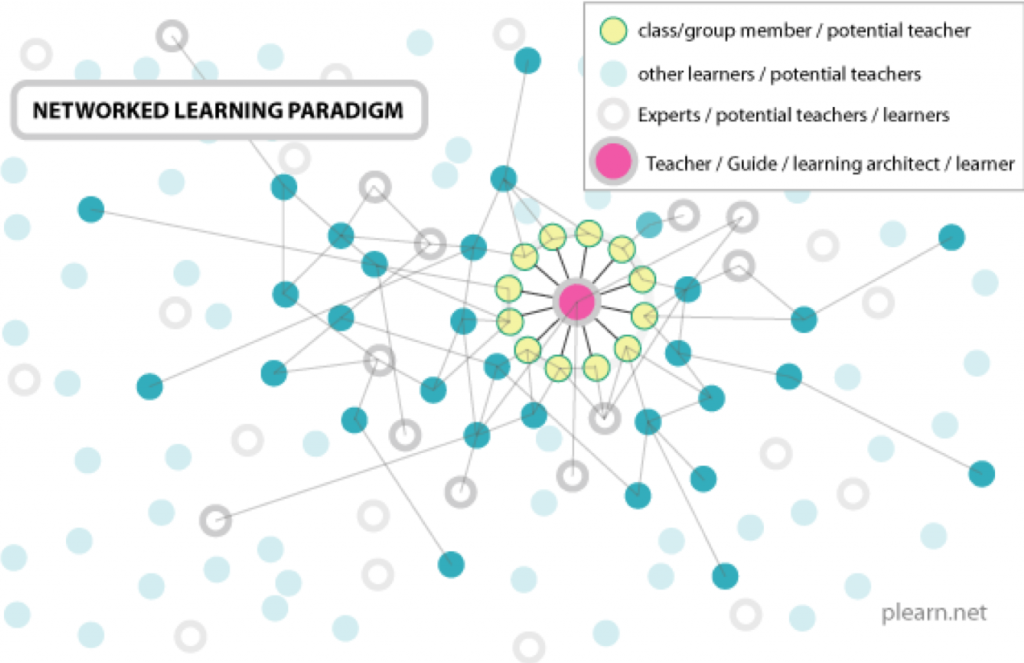“Thinning the Classroom Walls”
1 Send work out into the world
2 Make connections beyond the classroom
3 Learn along with our students
(Will Richardson, 2012)
TEDx: The Surprising Truth about Learning in Schools


Talking points
Learning happens in many places and spaces outside classrooms. This invites us to think about what it means to become a citizen in the digital age. Bonnie Stewart (2015), Assistant Professor of Online Pedagogy and Workplace Learning at Windsor University, has argued that social networks are sites of knowledge construction. As teachers, how can we connect with these sites, or even create new ones? Notice, in the networked learning paradigm, the many roles the teacher can take on. How do you see yourself in Alec Couros’ model of the Networked Teacher?
Will Richardson (2012) stated that new media invites us to “unlearn and relearn much of our own practice” and rethink our roles as educators. He suggested that we do this by 1) thinning the classroom walls and sending work out into the world; 2) making connections beyond the classroom; and 3) learning along with our students.
Blogging satisfies these 3 criteria: It takes learning into the public sphere, it allows for a shift from teacher-centered to student-driven learning, which provides students with diverse sources of knowledge (Collins & Halverson, 2009); and it invites teachers to learn along with students. Blogging can provide a low-stakes writing space that can support the development of a community of practice, which is a group of people who have common interests and can learn more about them through their interactions within the community than they would on their own (Wenger, 1998).
References
Collins, A., & Halverson, R. (2009). Rethinking education in the age of technology: The digital revolution and schooling in America. New York: Teachers College Press.
Richardson, W. (2012, October 25). Three starting points for thinking differently about learning. [Blog post]. Retrieved from http://learning.blogs.nytimes.com/2012/10/25/guest-post-three-starting-points-for-thinking-differently-about-learning/?_r=0.
Stewart, B. (2015). In abundance: Networked participatory practices as scholarship. International Review of Research in Open and Distributed Learning, 16(3), 1–12.
Wenger, E. (1998). Communities of practice: Learning, meaning and identity. Cambridge: Cambridge University Press.
